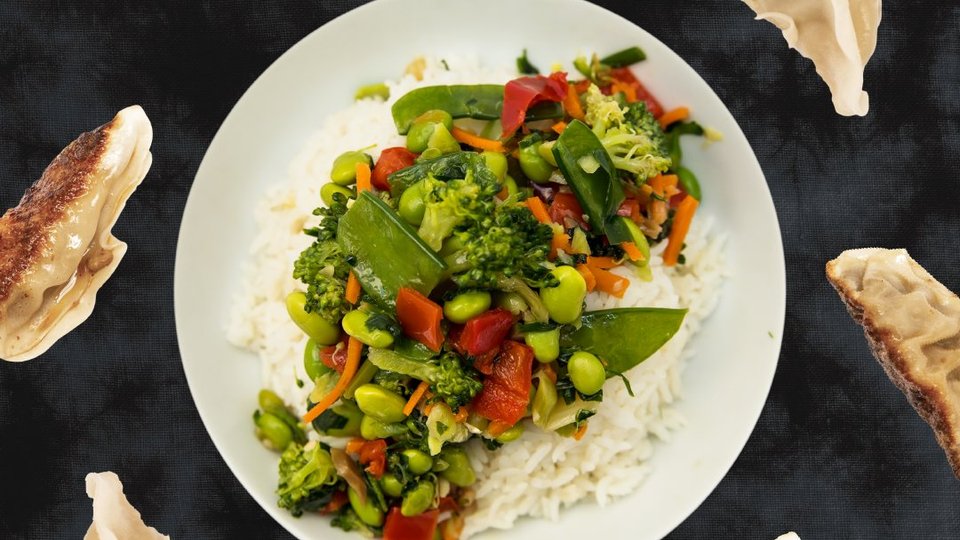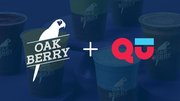Article
Wow Bao wants to be your next revenue stream
The Chicago-based chain is giving restaurant brands all over the U.S. access to another revenue stream by allowing them to serve a limited menu of its Bao, bowls and dumplings.

March 26, 2020 by Cherryh Cansler — Editor, FastCasual.com
Wow Bao is taking its steamed hot Asian buns on the run.
The Chicago-based chain is giving restaurant brands all over the U.S. access to another revenue stream by allowing them to serve a limited menu of its Bao, bowls and dumplings.
"We believe that every kitchen can be a third-party kitchen for Wow Bao," President Geoff Alexander said during an interview with FastCasual.
He's been testing the idea over the past few weeks with a sister restaurant in Schaumburg, Illinois, and has launched it with an existing tenant inside Kitchen United in San Francisco.
A second partner is coming online in two weeks in Miami, said Alexander, who believes this partnership is just the beginning.
How it works
The business model is perfect for any restaurant or third-party delivery company that already delivers as it can leverage its existing infrastructure, Alexander said. Overhead is low because there's no added labor or supply chain costs because the food is frozen. The employee can drop a Wow Bao order in the steamer, continue to fill the rest of the restaurant's order and come back to the bao when the timer goes off. Each order takes about 6 minutes to cook.
He said the up-front cost for a brand to participate is about $2,000, which includes online training and onboarding as well as the first order of packaging and all kitchen equipment needed to cook the buns — an aluminum kettle, rice cooker, bain marie / hot well. Kitchens that already have some or all of the equipment, however, will pay less. If the operator has a steamer, for example, there is no need for kettle or a rice cooker.
"Our goal is for the third-party operator to do $2,000 a week in sales," said Alexander, who believes the food and packaging costs will be under 40%.
"And you have 25% for your average third-party, so that's 30-40% flow through to their bottom line," he said.
That could easily mean an extra $40,000 per year on $100,000 of sales, for example.
"We're not promising that, of course, but it's how we built our model," said Alexander, who thinks the program could also prove lucrative for hotels, banquet halls and catering companies looking to monetize fixed assets and labor costs.
Because the product belongs to Wow Bao and is sold through Dot Foods and then on to distributors like Sysco, the supply chain is where Wow Bao makes its money, meaning Wow Bao's restaurant partners pay it nothing else.
"There is no fee going to us; no reporting of sales to us, no licensing, no franchising," said Alexander, whose team also serves as the go-between when it comes to working with third-party delivery companies like DoorDash or Uber Eats.
"We have those third-party relationships. We have a set menu that we are offering, so we can go to the third party on behalf (of the new partner) and just have them turn on that location. The menu is already done — all the assets — the photos and pricing."
Partners also get the brand recognition that comes with Wow Bao, Alexander said.
Protecting the brand
Although Alexander admitted that ensuring quality is a little harder as you add more partners, he said he wasn't terribly worried about it since the product was resilient.
"It really is hard to mess them up," he said. "So as long as they are serving them like they should we should be OK, and since we don't have hundreds of locations we can monitor it."
Also, the deal begins as a 3-month partnership, so ending the relationship is always an option.
"Of course, we would rather talk to that operator to get them to do it the right way and continue on," he said.
Innovation in the face of COVID-19
Alexander and his team have been working on this idea for the past several months, so although it wasn't inspired by COVID-19, Alexander now sees how it could help operators needing to fill the gaps.
"We didn't create this for what's going on in the world now; we started in November, but it just happens to be now is when so many are going to delivery-only," he said. "Now, we see it as something that might assist those brands, too."
Wow Bao has multiple company-owned stores and non-traditional venues including airports, universities and a food truck as well as partnerships with stadiums, hotels, and music festivals and its own retail CPG line.












